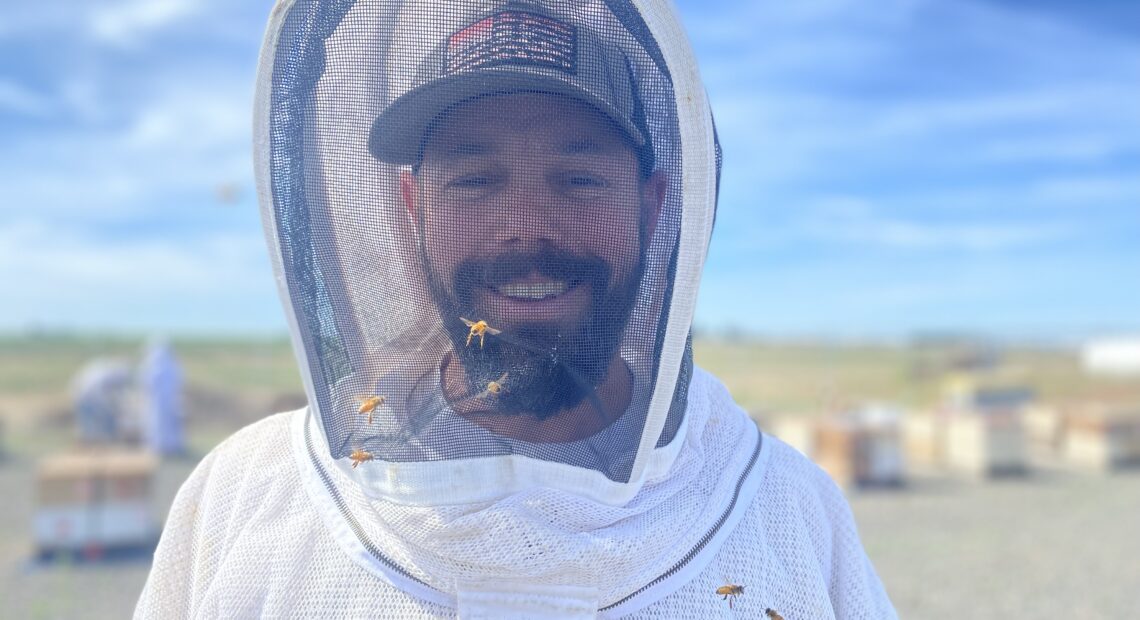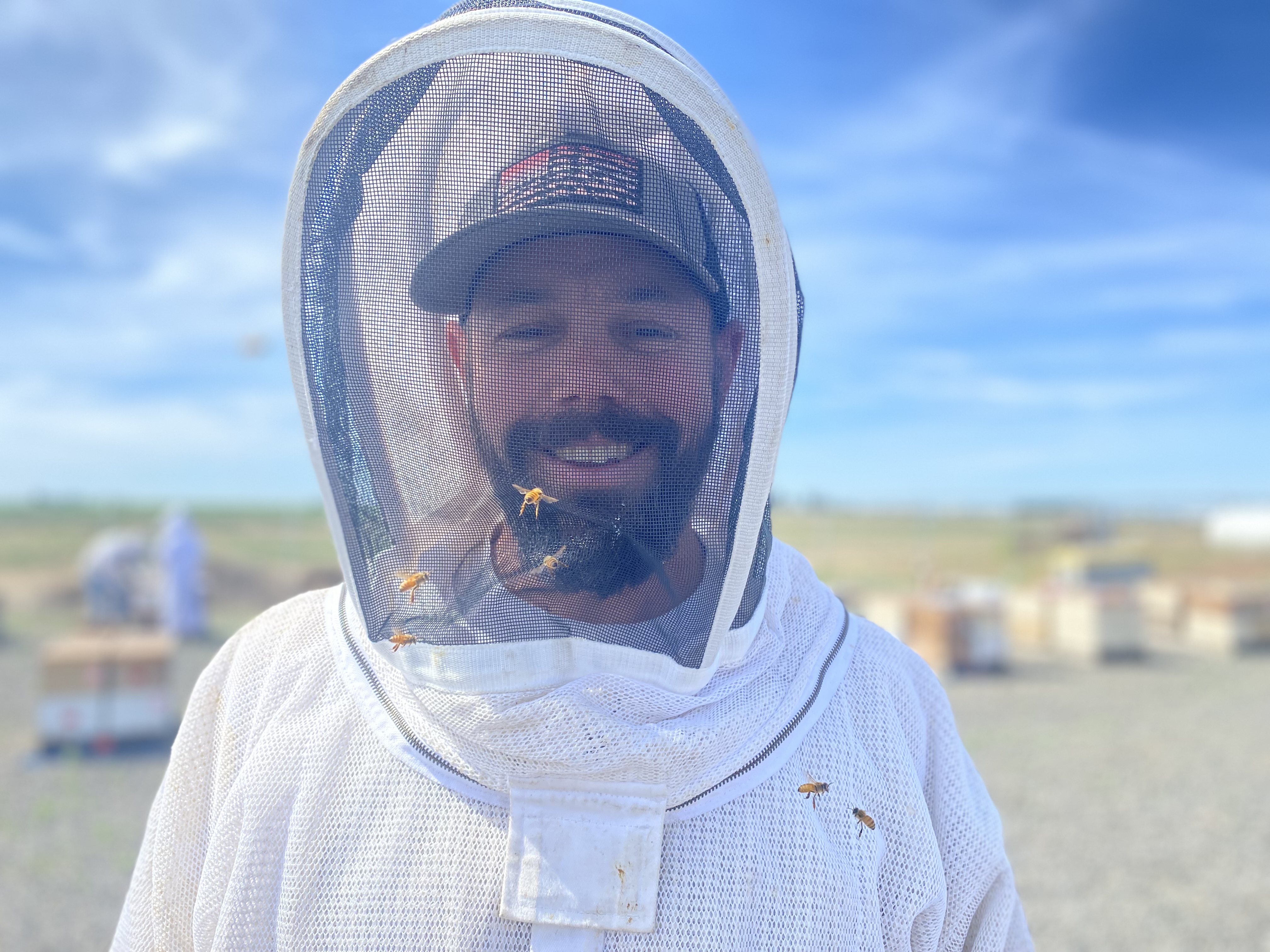
Fly, you die: Northwest bees that fly during mild winter weather less likely to survive until spring
Listen
(Runtime :55)
Read
New research out of Washington State University shows colonies of Northwest bees that fly in warm fall and winter weather are dying more quickly than they used to.
That’s because bees use up their reserves, and aren’t able to bring nectar or pollen back to the hive. Climate change could be making those die-outs worse. Brandon Hopkins, an assistant research professor with WSU, helped author the study that was published in “Scientific Reports” in late March. He said the winter bees need to live through March or April — and a lot of them aren’t.
“Not only do they need to survive, but they need to survive with enough resources inside their bodies and in the colony to start feeding and raising the new bees to replace themselves, when they eventually start flying out and dying,” Hopkins said.
Honey bees age dramatically when they leave the hive and start to forage — burning up their energy reserves. Hopkins said colonies are going through what’s called “spring dwindling.” There aren’t a lot of adults to feed the new brood and collect food outside the hive.
“If they don’t have enough, and they can’t raise enough replacements, at a rate higher than the rate of them flying out and dying, then the colony dies out,” the WSU assistant professor said.
About a third of the nation’s commercial bees are being stowed in cold storage facilities, he said. It’s helping the bees ride out the variable late seasons indoors, in more constant, controlled temperatures. Those indoor storage facilities could become ever more important in the future to help the colonies, Hopkins said.
















